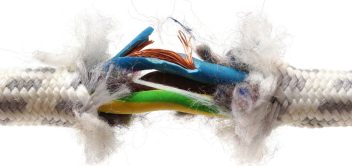Negligent Dental Treatment | We Can Help You
Claiming for Dental Negligence
When a patient visits a dentist for treatment, he or she trusts that the dentist will carry out the correct procedures in a satisfactory manner. More often than not, the majority of cases are carried out successfully but unfortunately it’s not uncommon for people to suffer pain and injury as a result of dental negligence or dental malpractice.
Synnott Lawline Solicitors are personal injury specialists in representing victims of malpractice for dental treatment in Ireland and overseas. Negligent treatment is not just the negligence of a dentist but also other health care staff including, hospitals or hospital staff. If you have sustained an injury as a result of dental treatment, this may constitute ‘dental negligence.
How do I Start my Dental Negligence Claim?
To make a successful dental negligence claim, it must be shown that you (the plaintiff) have sustained some form of personal injury either physical or psychological as a result of the treatment you received under the care of a dental practitioner, who has duty of care while you are undergoing treatment. A near miss is not sufficient to justify dental negligence compensation. The date of treatment is legally considered ‘the date of knowledge’ when the injury was sustained. The window to make any injury claim after the date of injury is 2 years. (Expect for child plaintiffs, which is 2 years from their 18th birthday)
- Take a record of the date of injury and type of treatment you were due to receive.
- Hold onto any dental records.
- Take photos if injury is visible.
- Contact your solicitor as soon as you realise your treatment was unsatisfactory or indeed unsuccessful.
Statute of Limitations – 2 Years to make a Dental Surgery Negligence Claim
You have two years from the date of your accident within which to make a claim after which time your case will become statute barred. If you have any legal questions or wish to start your claim, please do not hesitate to contact our dedicated and experienced team of solicitors who will be more than happy to talk you through the whole process and answer any questions that you may have. Contact us 7 days a week by Phone: 01 453 7890 Email: info@lawline.ie or fill out our Call Back Form.
-
Types of Different Dental Negligence
- Careless or sloppy work: if a dentist cuts a patient’s lip or gum during treatment or perhaps extracted a tooth in error.
- Inadequate Sanitation: If a dental clinic uses unsanitised equipment a patient can suffer from gum or tooth infection after the procedure.
- Misdiagnosis: If a dentist fails to properly or timely diagnose or treat a dental condition this can be cause for a dental injury negligence claim.
- Veneers: Improperly performed dental surgery has unfortunately become common place. The initial results can be satisfactory but if veneers have been fitted incorrectly the damage as a result can be very costly, time consuming and painful to repair.
-
Consent to Treatment
When a physician or hospital fails to obtain the informed consent of the patient before performing a procedure or operation. This may also be the case if your child has had a tooth extracted without the parents consent.
-
Lingual Nerve Damage
Permanent and unnecessary dental injury that occurs through malpractice could result in a severed lingual nerve. This occurs during a lower wisdom extraction when the dentist carelessly servers the lingual nerve resulting in total numbness and loss of taste.
-
Dental Treatment Abroad
Reduced price dental treatment overseas is very tempting but the results can be improperly performed dental surgery with no aftercare treatment available such as Crowns and Bridges, Implant Surgery, Root Canal treatment, Veneers Braces and more.
-
How Much will my Dental Claim Be Worth
The value of your injury compensation will be valued according to:
- The level of seriousness of injury
- How the injury effects appearance
- Age and sex of plaintiff
- The permanency and persistency of the injury caused
- The amount & cost of specialist dental repair work needed






































